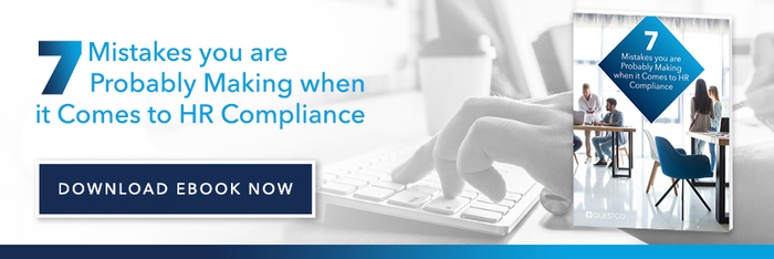Topic Outsourcing HR / PEO,
What are the Tax Implications of Using a PEO?

November 24, 2021 | By Mark Morter

The best-known benefit of partnering with a professional employer organization is the ability to offer Fortune 500 level employee benefits at small business costs.
However, a PEO also provides a suite of advantages when it comes to filing taxes. Some potential issues, notably the risk of a base wage restart, can be mitigated by using a certified PEO (CPEO).
What is a Certified PEO?
A certified PEO is a PEO that has passed a certification process administered by the IRS. This does not imply any endorsement. It simply means that the PEO meets regulatory and legislative requirements.
To be and stay certified, the PEO has to be bonded, undergo annual audits and quarterly proof of payment of employment taxes, and pay a yearly fee.
The vast majority of PEOs are not certified. Choosing a certified PEO puts you ahead of even the typical PEO client, who already enjoys numerous advantages.
3 PEO Tax Implications
So, what are the tax implications of working with a PEO, and why is a certified PEO better?
Payroll Taxes Are Filed By the PEO
Payroll processors simply tell you what you owe. A PEO files the payroll taxes for you, eliminating even more paperwork. This is possible because a PEO files both their own taxes and client taxes under the same Federal Employer Identification Number (FEIN). However, you are still liable for any mistakes the PEO makes.
That is not the case if your PEO is certified. In that case, the PEO is liable for any payroll mistakes.
Your SUTA Rate May Decrease
Because the PEO is the employer of record for tax remittance purposes, they are also responsible for state unemployment taxes (SUTA). The rate they are charged is usually different from the rates you were paying on your own. Why is this?
State unemployment tax is calculated like other payroll taxes off of a percentage of payroll. Businesses pay according to industry and their claims history. High voluntary turnover can mean a higher rate. PEO clients typically experience lower turnover.
PEOs also decrease your SUTA rate by giving you access to their history of claims. If the PEO has a better claims history, this will lower premiums for the PEO’s client.
This is a saving most new PEO clients don't expect.
One-Time State and Federal Tax Restarts
This is the biggest downside of working with a PEO. Because your employees are transferred to the PEO’s FEIN for taxes and payroll, you are vulnerable to what is called a tax restart.
SUTA, like social security, is determined based on the part of an employee's income. This amount varies by state. Once an employee hits the cap, you don't have to pay any more on that employee for that year.
However, let's say your employee hits the cap in May and you partner with a PEO in June. The cap is $20k. You now have to pay SUTA taxes on the next $20k earned due to the change in employer of record. Although this only affects you in the first year, it can be a significant amount of money that is essentially double taxation jeopardy.
How to Avoid Tax Restarts
So, how can you avoid those potentially painful tax restarts?
Use A CPEO
Choosing a certified PEO does help. At the federal level, the wage base restart is waived. This covers things like Federal Insurance Contributions Act (social security taxes) and Federal Unemployment Insurance Act taxes. This can make a huge difference, especially if you have higher-earning employees.
Some states, one of which is Texas, also provide a waiver of SUTA if you use a certified PEO. The idea is that the transfer to the PEO is not, in fact, a change of employment and should not be treated as such, but unless the PEO is certified, it will be treated as if the employee changed jobs for tax purposes.
Timing
The other way to avoid a wage base restart is a simple one: Timing. If you have your contract with the PEO start on January 1, you can avoid the restart.
Weighing the Financial Benefits of PEOs
While it is true that there is a financial penalty when you join a PEO in the middle of the year, this should not be considered a deal killer. The one-time cost may be offset by the other savings you will get by partnering with a PEO. This can save you money and add capabilities, such as being able to provide retirement benefits to your employees.
It would be best if you looked at the total cost picture so you can make a well-informed decision about the financial and tax benefits of partnering with a PEO.

Mark Morter
As the National Sales Director, Mark has over 25 years of sales and sales management experience, 14 of which have been in the PEO industry. He has built, expanded, and turned around sales teams and markets. Mark is known for driving growth and revenue and has been recognized for the recruitment and development of Award-winning sales professionals.




